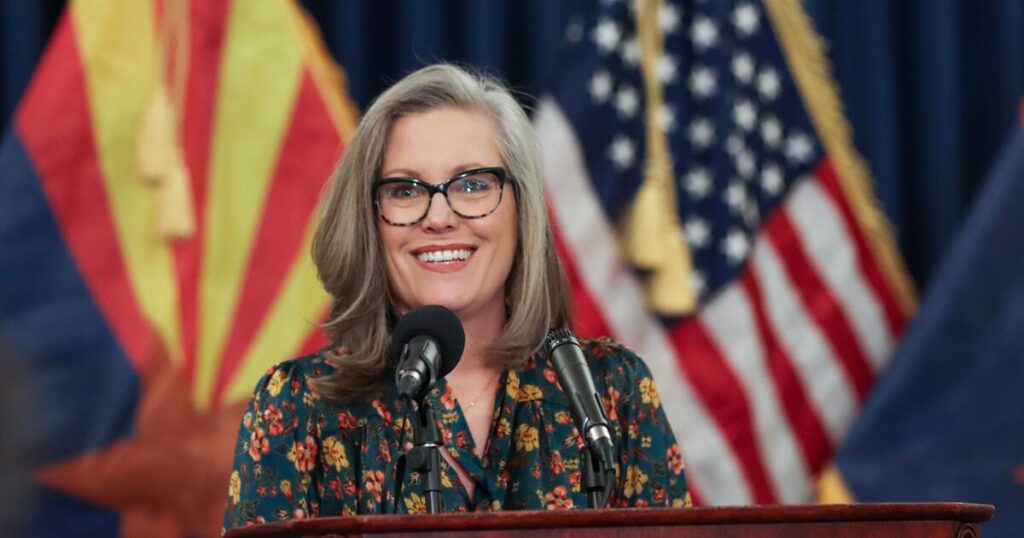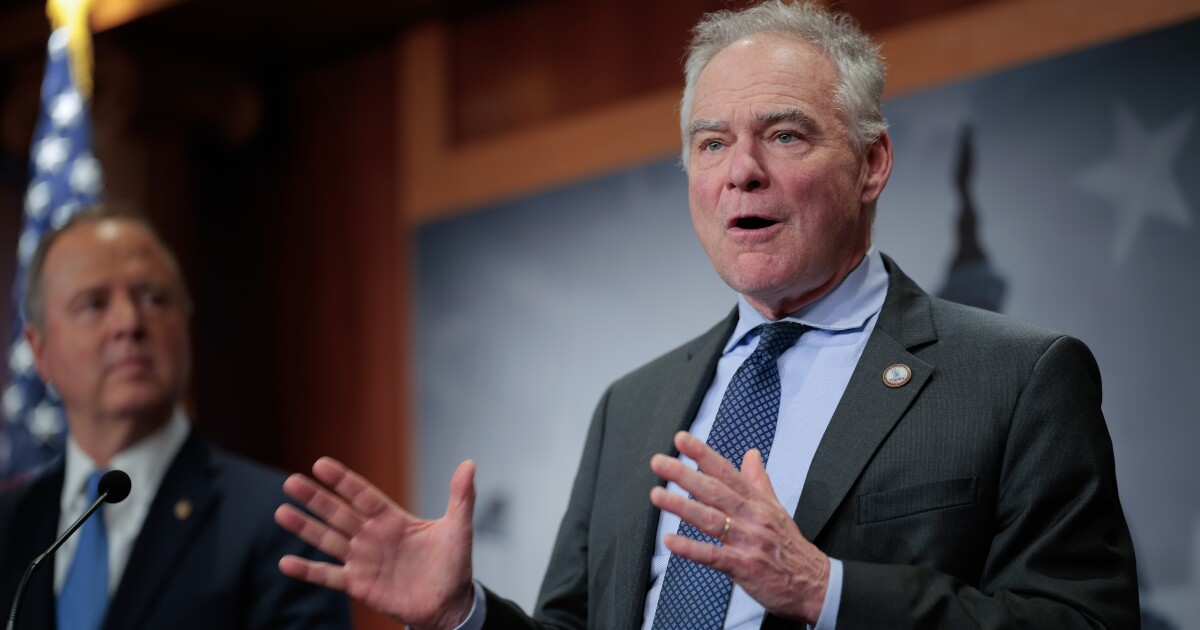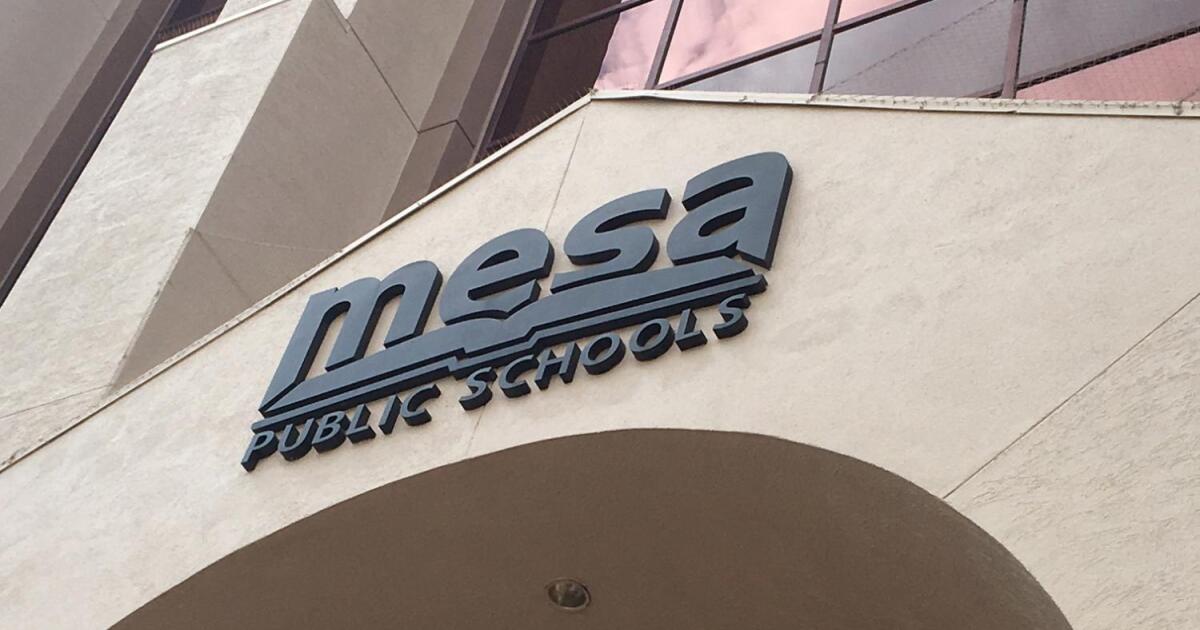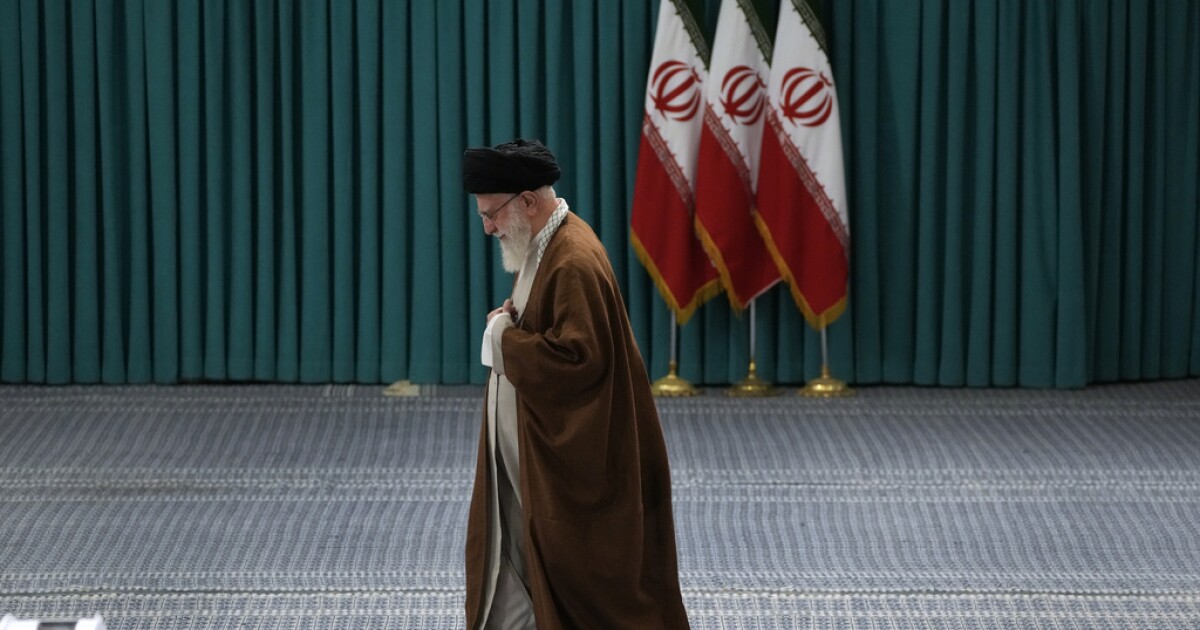Arizona’s Governor Katie Hobbs has proposed a new tax initiative aimed at easing the financial burden on middle-class families, aligning with federal tax reductions endorsed by President Donald Trump earlier this year. Open to discussions on further cuts for higher-income residents, Hobbs has challenged Republican lawmakers to identify funding for such measures.
The governor introduced her proposal earlier this month. It suggests increasing the standard deduction for Arizona taxpayers to match the provisions in Trump’s “Big Beautiful Bill,” also known as H.R. 1. Additionally, Hobbs advocates for new deductions for those over 65 and wants to allow deductions for tips, eligible overtime pay, and interest from certain car loans.
Hobbs describes her plan as a continuation of her promise to collaborate with President Trump for the benefit of Arizonans. “I am looking forward to working with Republicans at the beginning of session to codify this,” she stated.
However, the proposal has been met with skepticism from Arizona’s GOP lawmakers, who accuse her of attempting to claim credit for federally driven tax cuts. “Middle-class families deserve honesty, not last-minute attempts to steal credit for others’ hard work,” commented Sen. J.D. Mesnard (R-Chandler), chair of the state Senate committee focused on tax policy.
He further remarked, “Let’s be clear: Governor Hobbs didn’t create these tax cuts — she’s trying to take a victory lap on the GOP’s work.”
Conformity
Hobbs’ plan does not extend to adopting all federal cuts in H.R. 1, particularly those seen to favor wealthy residents, such as faster write-offs for new business equipment. She emphasized, “I am ensuring that Arizonans have lower taxes, and this will benefit almost every single tax filer.”
Republicans warn that not fully adopting the federal cuts may complicate tax filing for Arizonans, necessitating separate calculations for state and federal taxes. This could lead to what Sen. John Kavanagh (R-Fountain Hills), the state Senate Majority Leader, terms an “accounting nightmare.”
While Hobbs is not against considering other federal tax cuts for Arizona, she suggests these discussions should occur during broader budget negotiations, typically concluded by summer, long after the April tax filing deadline. She urges the Republican-controlled Legislature to swiftly pass the middle-class tax cuts for implementation on 2025 tax returns.
“The Washington budget made this tax cut retroactive,” Hobbs noted. “I’m making sure that the majority of Arizonans, everyday Arizonans, middle-class Arizonans, can claim this higher standard deduction. The tax cuts for billionaires and for corporations come with a big price tag, and I want Republicans to show me in budget negotiations how they want to pay for that.”
The Cost
The Governor’s Office calculates the preferred cuts will cost Arizona $215 million in lost revenue. Full alignment with federal cuts could result in a $438 million shortfall, according to legislative budget analysts.
This financial impact may further complicate budget discussions between Hobbs and Republicans, who face ongoing budget challenges, including past deficits and near-bankruptcies in state programs.
Democrats, including Hobbs, attribute part of the state’s financial woes to a previous income tax cut under former Republican Gov. Doug Ducey, which they argue favored wealthier Arizonans.
Hobbs has yet to detail how she plans to fund the proposed cuts but assured, “You’ll see it in our budget when we put out our budget in January.” Meanwhile, Kavanagh expressed confidence in finding the necessary funding for a comprehensive tax cut package.
Howard Fischer with Capitol Media Services contributed to this report.
—
Read More Arizona News










